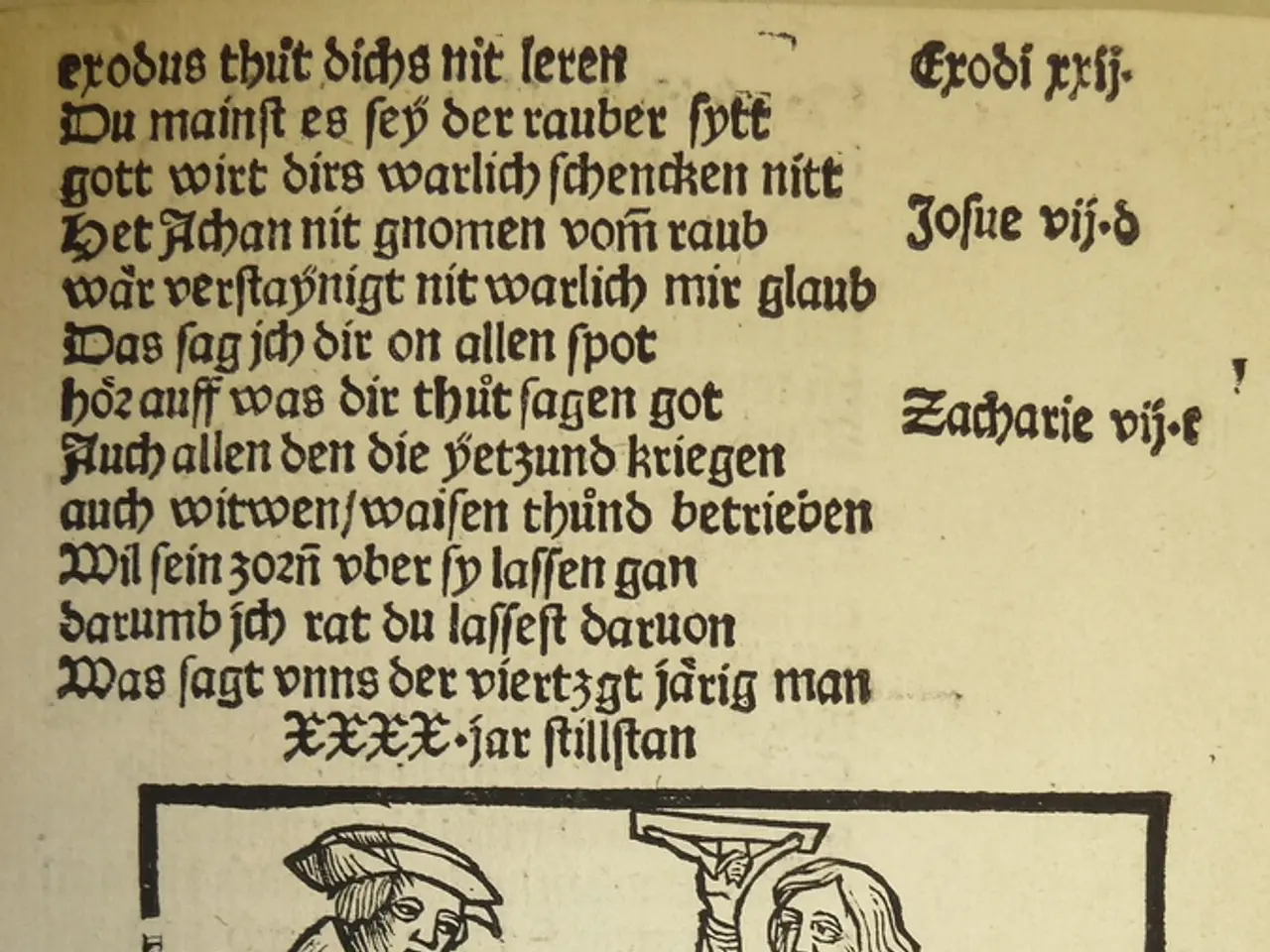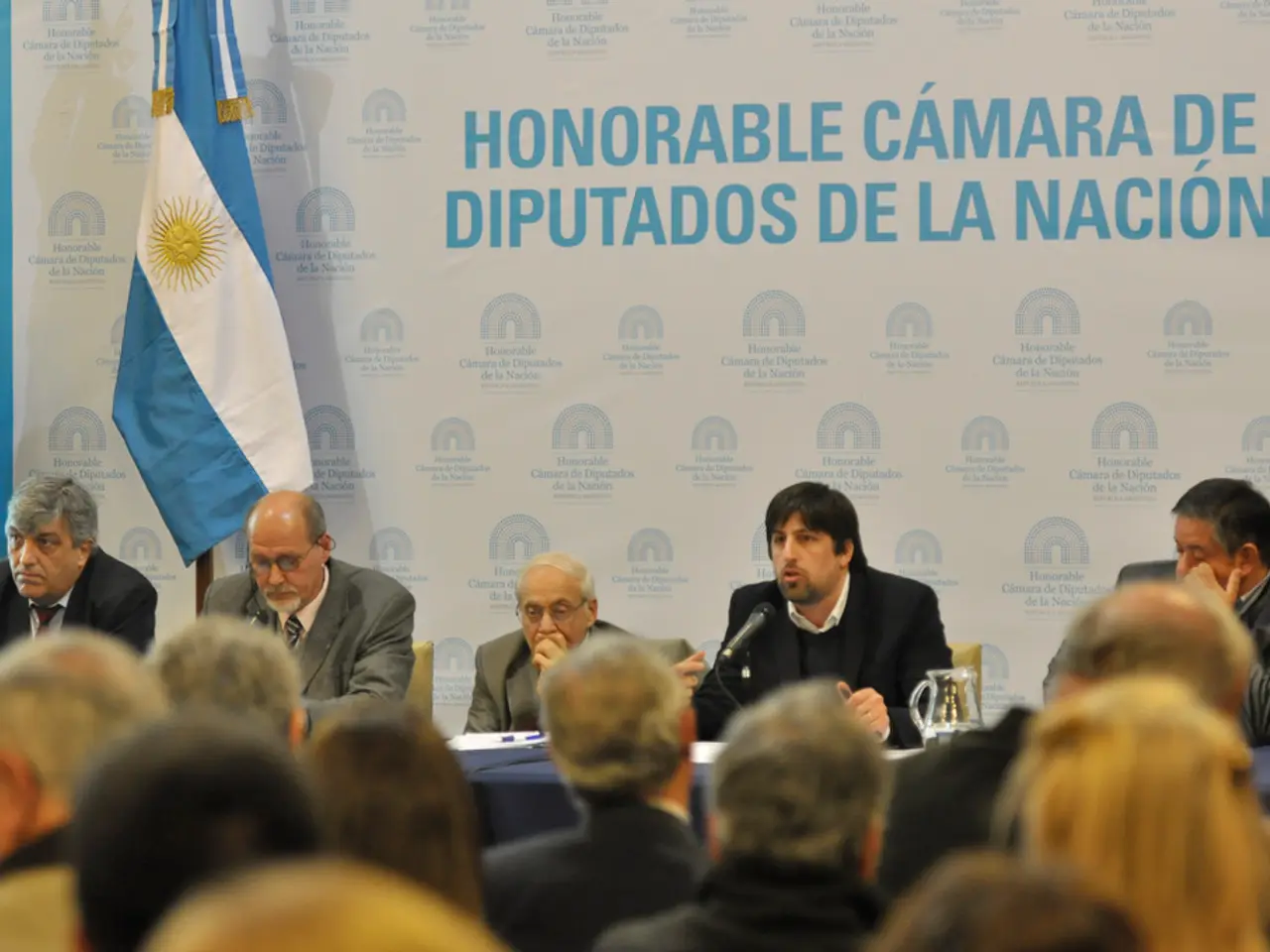Recipients of Public Funds Should Abstain from Gender-Related Activities (Weimer's Statement)
German Culture Minister Calls for Gender-Neutral Language Ban in Public Institutions
German Culture Minister Wolfram Weimer has taken a stance against the use of gender-inclusive language in official communications, extending his ban to all publicly funded agencies, including museums, foundations, and broadcasting.
In a move that has sparked controversy, Weimer has enforced the use of traditional German language rules without gender asterisks or internal capitalization for official correspondence, favoring greetings like "Sehr geehrte Damen und Herren" ("Dear Madam, dear Sir").
Weimer argues that forced gendering in language does not reflect how most people in Germany speak and that gender-inclusive language deepens societal division. While he allows individuals to express themselves privately as they wish, the official communications of his office adhere strictly to the standard German orthography guidelines.
This policy applies to the 470 employees under his authority in Berlin and Bonn, and he has publicly called on other federally funded institutions to follow suit. However, no other ministries have adopted a similar gender language ban so far.
Misbah Khan, the deputy leader of the Green parliamentary group, sees an "implicit threat" in Weimer's statements, believing it to be an attack on the freedom of art and culture and an attempt to discipline critical voices. Sven Lehmann, chairman of the Culture Committee in the Bundestag, criticized Weimer's proposal, calling him a "cultural missionary".
The German Journalists' Association and the DJV chairman, Mika Beuster, oppose Weimer's proposal, citing it as an interference with broadcasting freedom and an intrusion into the editorial decisions of public broadcasters and Deutsche Welle.
However, not all regions are opposed to the idea of a gender language ban. Bavaria implemented a ban on "gender language with special characters for gender specification" in authorities in spring 2024, and Thuringia instructed its state authorities to refrain from "grammatically incorrect gender language" at the end of 2022.
Weimer believes that language should bring people together, not drive them apart. In his department, he has refrained from using special characters like asterisks, colons, or underscores in favor of linguistic and legal clarity. Institutions that do not comply with Weimer's proposal risk losing relevant funding, according to Khan.
The federal government does not use words with gender asterisks and follows the recommendations of the Council for German Orthography. The debate over gender-inclusive language continues to rage on, with no clear resolution in sight.
[1] https://www.deutschlandfunk.de/wolfram-weimer-verzichtet-auf-geschlechtsneutrale-sprache-in-offiziellen-kommunikationen.1051.de.html [2] https://www.tagesspiegel.de/politik/wolfram-weimer-verzichtet-auf-geschlechtsneutrale-sprache-in-offiziellen-kommunikationen/27449120.html [3] https://www.spiegel.de/politik/deutschland/wolfram-weimer-verzichtet-auf-geschlechtsneutrale-sprache-in-offiziellen-kommunikationen-a-566417d9-830e-414f-a4e3-f0245450659a [4] https://www.wdr.de/nachrichten/wolfram-weimer-verzichtet-auf-geschlechtsneutrale-sprache-in-offiziellen-kommunikationen-100.html
In line with his policy-and-legislation, German Culture Minister Wolfram Weimer is pushing for a traditional, non-gender-inclusive language in official communications across public institutions, including museums and broadcasting, a move he believes aligns with the general-news and general sentiment of most Germans. This push for strict standard German orthography has prompted controversy in political circles and journalistic associations, with some viewing it as an implicit threat to freedom of art, culture, and expression.





